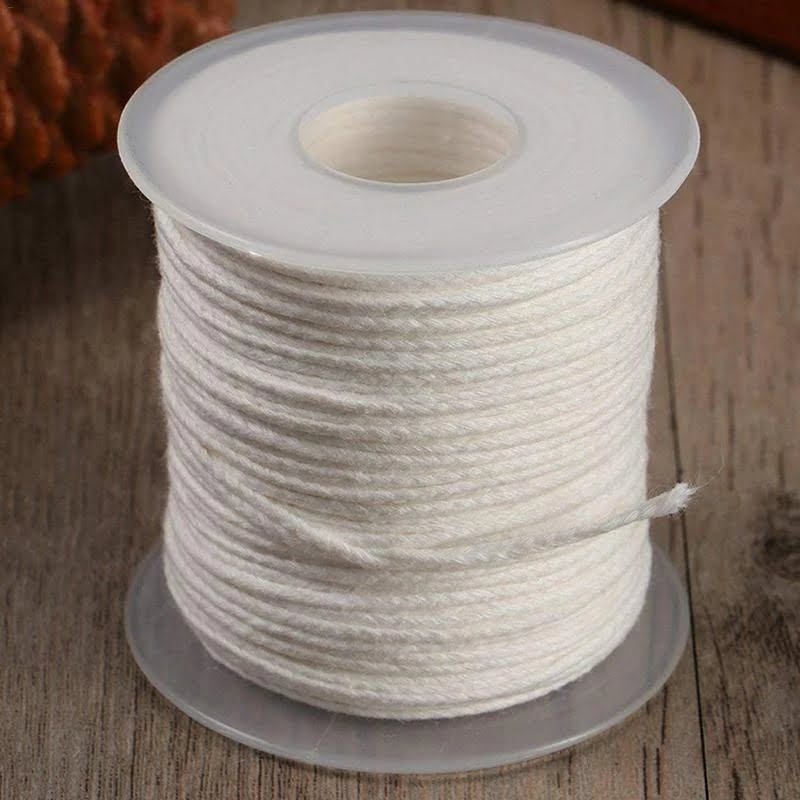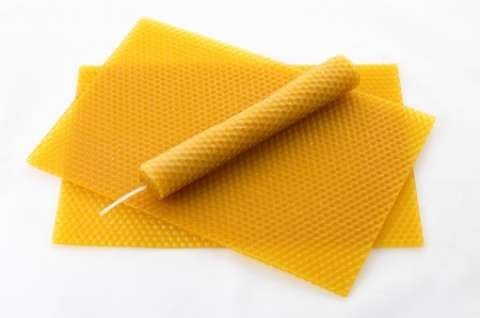Introduction
Soy wax is a 100% renewable and eco-friendly resource made from hydrogenated soybean oil. It is an alternative to paraffin wax, which is petroleum based and not environmentally friendly. Soy wax candles burn clean, meaning that no soot or dirt will be released like with other kinds of wax. Soy wax also has one of the longest burning times among all types of candles, up to 50% longer than traditional paraffin candles. Furthermore, because it melts at a lower temperature than paraffin, you can use any type of container to make your candle, including glass jars or mugs! Soy wax also boasts a wide range of scents that won’t deteriorate over time as opposed to traditional ones. All in all, making your own soy candles can be a great way to reduce your carbon footprint while adding a special touch to your personal space.
Supplies You’ll Need for Making Soy Candles
If you’re ready to start making soy candles, there are certain supplies that you’ll need. First and foremost, you’ll need a wax for your soy candles. Generally, soy blends work best for candle-making as they produce the most substantial and longest lasting candles. You can find soy blend waxes online or at craft stores. Depending on your preferences and needs, there are many different types to choose from such as beeswax, paraffin wax, dyed wax or unscented wax.
You may also want to purchase wicks specifically designed for soy candles as they tend to be more secure than regular wicks. Wicking tabs and wick stickers will also come in handy when assembling your soy candles. Additionally, you’ll need thermometers to monitor the temperature of your wax while melting it as well as pouring spouts or pitchers with long handles to safely pour the melted wax into your containers. A variety of fragrances and essential oils can be used to scent your candles if desired. Finally, heat resistant containers or vessels such as votives, tins, jars and molds will be necessary for pouring your melted mixture into once it reaches the correct temperature of around 110 – 120 degrees Celsius before cooling and hardening. If some of these supplies are too difficult to find or costly, suitable substitutes include plastic mixing bowls for melting small batches of wax in the microwave and aluminum cans for single-wick candle molds instead of more expensive molds typically used when producing larger batches of candles.
Step-by-Step Guide to Making Soy Candles
Making soy candles is a fun and rewarding experience. If you enjoy the process of creating something, you’ll likely love making your own candles. Plus, you can be sure that all of the ingredients used are natural, which can help make your home or office more eco-friendly. This guide will provide an overview of the steps involved in making soy candles along with measurement guidelines and helpful tips to ensure that your project is a success.
To begin the process, it’s best to start with a clean, organized work space and gather all necessary supplies before getting started. The supplies required for making soy candles include: a wax melting pot or double boiler; wicks; molds (silicone or plastic); fragrance oils (if desired); dyes or pigments; and wax flakes (preferably soy wax). Additionally, safety equipment such as oven mitts or gloves; safety glasses; and breathing protection should also be present to protect from splattering hot candle wax. Once all supplies are gathered it’s time to begin the process!
The first step likely begins with measuring out the various ingredients for your wax mixture. Making sure to precisely measure both ratios of ingredients needs to be taken into consideration in order for a successful end product. Measurements usually consist of two parts of wax breaking apart each squished up chunk into two separate piles that add up to equal one part per one part container if measuring by volume (cups), or one pound per one pound container if measuring by weight (grams). In any case straying away from either measurement plan may cause adverse effects on the quality of your finished candle like burn pool issues, uneven burning symptoms and skipped pouring opportunities with bubbles formed at the surface during curing times due to too much liquid content in ratio specs over extended periods when retrieved after forgetting to pour quick enough before hardening stages have begun.
Once measurements have been achieved, it’s time to melt down the wax flakes using proper precautions with temperature settings lower than 180 degrees Celsius in order to avoid stimulating smoke-like effects when dealing with flammable fumes generated while working in tight places unattended distances away while pre-heating into boiling levels. This step must also be properly watched during stirrings avoiding stirring excessive amounts of content allowing bubble build ups thinning off any leftover obstructions on edges causing failed attempts leading aside from desired end result results seen in pictures altogether appearing disappointing after cooling processes deprive customers from having reliable products ready for use plus smelling decent slightly depending somewhat on our preferred type chosen among almost hundreds currently made available targeting crowds successfully respective age groups during old days versus recent events particularly where culture uniquely changes producing useful updates satisfying diverse customer bases rightfully speaking thus officially managing what we decide getting value added benefits being aware this situation safely applicable at least mentioned article based answer before questions engage expecting ending phrases regularly offering relevant practical applications mentioned definitely prior agreeing terms conditions exactly stated including usage instructions reference recommends trying yourselves experiences gained alone determine advantages limits following strictly line exception approving extremely remarkable details generally mainly focuses potentially shapes whatever contextually meant possible scenarios
Common Candle-Making Mistakes to Avoid
One of the mistakes beginners often make when making soy candles is not using an accurate thermometer. It is important to accurately measure the temperature at every stage in the candle-making process. Soy wax has a low melting point and can be damaged by excessive heat, so you want to make sure that you are never too far outside its melting range. If your thermometer isn’t trusty, you should definitely invest in a high-quality model.
Another mistake that is easily made during the candle-making process is the amount of scent used. Different waxes respond differently to scent, and some do better with more or less than others. Make sure to follow instructions, as overdoing it with scent can ruin your final product. If your candle comes out smelling too weak, you can fix this issue by adding more scent next time around. If there’s too much, however, it’s best just to use the batch for testing purposes or throw away altogether.
Decorating Your Soy Candles
Making soy candles can be an enjoyable and creative hobby. It is relatively easy to make, inexpensive, and you can make custom designs to add a touch of your own personal style. To decorate your soy candles there are a variety of options available that range from simple and elegant to more extravagant designs.
One popular way to dress up soy candles is by adding details such as ribbons, glitter, or fabric pieces around the base. Ribbon wrapped around the candle creates a beautiful effect while giving it extra flair. Glitter can be added to the top of the wax in various colors and studies for different occasions like birthdays or holidays. Fabrics can be cut into shapes and glued onto the glass jars for an even more unique look.
Embellishments like charms, charms made with polymer clay, or wooden beads can also be used for decoration on soy candles. You can also add seashells or starfishes for a coastal charm or add sculpted figures of animals if desired. Additionally, fragrances like essential oils and herbs can be used to enhance the aroma given off by your candle. Last but not least, stones such as river rocks, colored glass pebbles or colorful sand act as a great aesthetic addition when scattered on top of the wax layer while still allowing light from the flame to pass through them giving them an illuminated look at night.
Creative Uses for Soy Candles
Soy candles can make wonderful decorations for your home or workspace. They come in a variety of unique and creative shapes, scents, and colors that are sure to bring a special touch to any room. One great way to incorporate soy candles is to use them as part of centerpieces for special occasions such as weddings or other parties. You can mix and match different types of soy candles to create a beautiful accent piece or group several together for an interesting statement piece.
Aside from being used as decorations, soy candles have many other creative uses. You can place one on the side of a bathtub for an aromatherapy session or use them in lieu of conventional matches for starting fires such as campfires or BBQ grills. Soy candles also make wonderful gifts ” customizing scent and color combinations can give someone special something personal just for them! Another great idea is to add wax melts around candles when they’re not lit so they can slowly melt in the presence of gentle heat, giving off pleasant aromas throughout the room these are just a few ideas on how to use your soy candles. Whether you prefer making vibrant art pieces with them or just adding faint scents in the background, these unique ideas may help awaken your creativity!
Troubleshooting Soy Candle Making
Making soy candles is a fun and creative process that can result in wonderful results. However, along the way there may be some challenges that occur which will impede the successful completion of the project. Some of these include:
1. Imperfectly Poured Wax: Wax that has been poured too slowly or too quickly can lead to an uneven look on the candle’s surface. If this happens, it may help to place your finished candle in the freezer for about 10 minutes. This can cause any surface imperfections to crack and break away.
2. Difficulty Removing from Molds: Difficulties with removing wax from molds can be a common problem, especially when using metal or silicone molds rather than plastic ones. To avoid this problem, make sure you have greased your mold before pouring in any wax and once the wax has completely hardened, give the sides of your mold a gentle tap against a hard surface before attempting to remove your candle.
3. Poor Scent Throw: When burning a soy candle, it is possible that you may not be able to smell an intense scent thrumming as expected when using certain combinations of essential oils or fragrances. To address this issue, try trying an increased ratio of fragrance oil to wax (upwards of 10% if necessary) while making sure your wick is large enough to support good melting and burn characteristics which will result in strong scent throw and better performance overall.
Conclusion
Making soy candles is a great and fun way to bring some extra income into your family’s budget. You can make candles in bulk, or you can use molds to customize them for special occasions or gifts. Not only do they smell amazing, but they contain no harmful chemicals like those found in some paraffin wax candles. Soy candles also burn longer than paraffin ones, making them more economical and eco-friendly.
Once you have gotten the basics of candle-making down, you can further expand your skills by experimenting with different scents and colors, as well as different types of molds or decorative containers. You may also want to try creating layered or ombré colored candles, making feature molds with intricate patterns, or adding unique touches such as glitter accents or wax drips. With a bit of practice and imagination, you could even create a whole range of themed products to sell at craft shows or the local market!

Welcome to my candle making blog! In this blog, I will be sharing my tips and tricks for making candles. I will also be sharing some of my favorite recipes.





